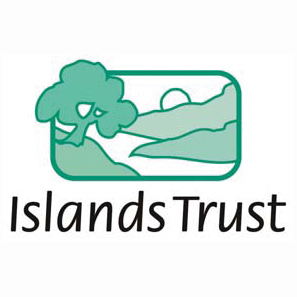Derek Kilbourn
Sounder News
The Islands Trust Council is among those governments who are grappling on how to operate a local government in the age of generative AI (Artificial Intelligence).
According to Wikipedia, generative AI is, “a subset of artificial intelligence that uses generative models to produce text, images, videos, or other forms of data.”
It’s this kind of AI that people are using when they ask an AI program to write a response to an email they’ve received.
Trustee Sam Borthwick (Denman Island) started the conversation asking if the Islands Trust is using AI anywhere, if that’s a part of how the Trust is doing business.
“There are serious concerns about the ethics of AI, but also in how it is being used, how data is being gathered. Issues of intellectual theft of intellectual property in terms of generative AI in particular. I would be really worried about the margin of error that exists within data produced by generative AI. We should discuss this. Create policy around this.”
He highlighted another reason for the Trust to be concerned with the usage of AI, and that’s the, “environmental impacts of AI, the development of AI, and the growth of those large language models is significant.”
Borthwick outlined how just the creation of a 100 word email using an AI system can mean the usage of a bottle of water, within the cooling systems used in data centres.
“That’s not even getting into the toxic stuff that is used to create the chips that are used to make it.”
He added that data centres are the among the largest electricity consumers in the world, and the consumption is growing exponentially.”
Borthwick said he’d be in discussions with Trust staff – in particular David Marlor, Director, Legislative and Information Services – regarding the usage of AI and data security.
“I understand [staff] are already taking steps.
“There’s certainly a lot of work going into data hygiene, making sure our data is not stored in the US. I’m pleased to hear that, that makes me feel more secure about how our data is being managed.”
He reiterated that there are implications that needed to be discussed, especially for the Islands Trust, as he said, “a body that explicitly notes the environment as part of our main stakeholders.
“I do not think we can afford to be ambivalent about the impacts.
“As an organization, I value having real people write our bylaws.
“Having real people write the communications copy we have.
“As Trustees, speaking up for things individually, I don’t want to have that come through a computer. I think it’s really important that we as humans remain very very involved and in control of our political landscape and the preserving and protecting of our area.”
Marlor said from a policy perspective, AI is relatively new.
He said the provincial government does have an interim policy available for local governments regarding the usage of AI.
Trust staff, according to Marlor, have been looking at the policy, “and we’ll probably be adapting that for our staff.
“So we will not be reinventing the wheel, we just want to follow on and make sure what the province has is actually effective for us.”
He said that as Trustee Borthwick had mentioned, Trust staff are looking at where Trust data is stored, and how the Trust uses different software solutions.
“We have to look at where data goes. It has to be in Canada at the very least. Partly for privacy reasons, but other considerations as well.
[AI] is definitely emerging, and is definitely something all the management staff have been talking about.
“How to handle AI. Not just the background stuff, but also the impacts on it for staff in hiring and data privacy as well.”
Trustee Deb Morrison from North Pender Island asked – given the provincial policy in place – how much say the trust would have for policies.
Trust CAO Rueben Bronee said that to the extent, “where we have the ability to make decisions over these things – we would engage Trust Council.
“We would certainly advise you of any directives so that you’re aware of those.”
Bronee said the issue is enormously complex.
“Not the least because AI is becoming increasingly integrated into the tools we use every day.
“So any choice to extract yourselves becomes extremely difficult and potentially very expensive. It is a very complex issue with a lot of considerations.”
He said on the policy side, the province is looking at technology and information management.
“But they are also looking at policies around HR for example. How do you harness or limit the application of AI in HR practises?
“Those are policies -if they move anything on the provincial side – that would certainly apply to us as well.
“We’ll continue to monitor that – and advise Trust Council of any developments and any opportunity for you to influence decisions on that.”
Trustee Susan Yates (Gabriola Island) said pursuant to Peterson’s query about the interim policy that the province has for AI, “I’d like to get an update on that. Whether they have a permanent policy, or an updated interim policy, I’d find that helpful.”
Trustee Tobi Elliott (Gabriola Island) pointed out that the Trust had just signed a new contract for iPhones for Trustees.
“I’ve noticed that my iPhone has been updated with an AI helper.
“There are some really serious implications if these are government-issued phones that have this as a service. We really have to think about this.”





Recent Comments